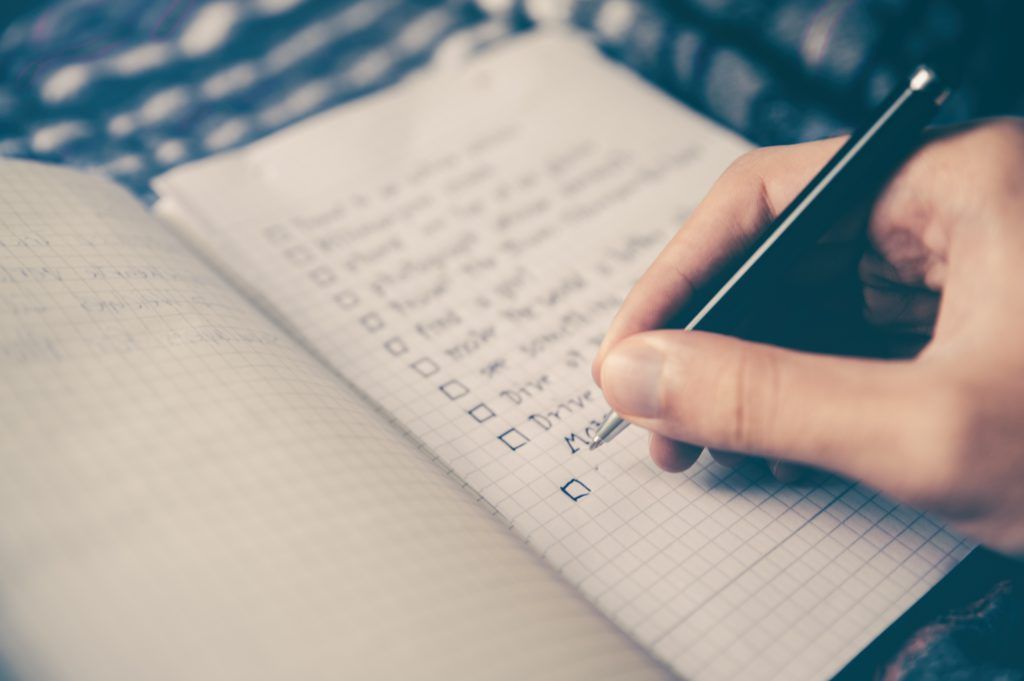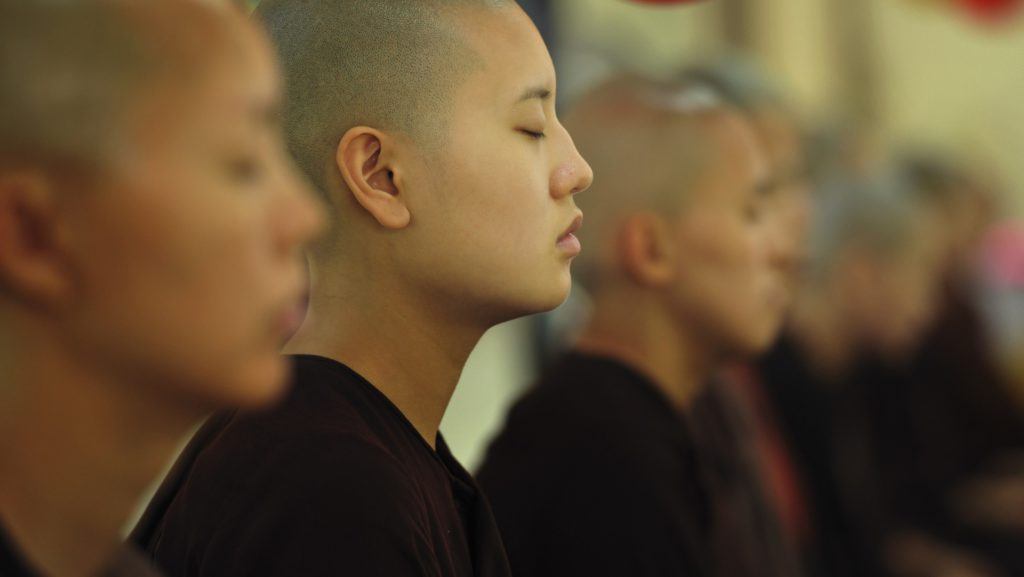Life has become stressful, isn’t it ? Don’t you feel at times that you are losing control over your life, every day seems to pass by just like any other day. If you notice, your mind is often bogged with thoughts like – Am I doing enough for my family ? Am I good at job or is my job at risk ? Is the money going to be enough ?
You will notice a lot of ‘What If’ questions lurking in your mind throughout the day. What if, this happens ? What if, this goes wrong ? What if, I fail ? What if, I lose my job ? The list is endless.
So let’s admit – Yes I am stressed and anxious and I am seeking answers to the above questions, so that my mind is at peace. Is meditation the answer to above questions ? If yes, then how to meditate to relieve stress and anxiety ? Let me share with you a 3 Step process (of which meditation is one of the steps) to combat with stress and anxiety.
Step 1: Know The Cause of Stress ?

Do you know what is causing you the stress and anxiety ? I will give you perfect example so that you understand my point.
Let’s say, you are having a tough time managing your finances. You are loaded with loans and you are finding it difficult to meet ends. Now check how your mind functions in such a situation ? These are possibly some repetitive thoughts going on in your mind:
- I have so little money left, this is barely sufficient.
- These debts are not going to get over.
- If it continues like this I may have to file for bankruptcy
- If I lose this job things will get even worse.
Here’s my point – It is the constant repetitive thoughts triggered by a situation or circumstances which is causing you stress.
It is not the situation or circumstances, which is causing the stress, instead it is these initial thoughts, which multiplies into similar negative thoughts and creates anxiety, stress and tension. It starts with one negative thought and quickly branches out to more such thoughts, which often leads to a ‘negative thinking pattern’ in our brains permanently.
So your job now is to look at your life and identify or acknowledge these ‘automatic negative thoughts’ running in your mind.
Step 2: Get a Writing Pad

You must be wondering how a writing pad will relieve my stress ? Let me show you, pause for a moment and quickly grab a writing pad and pen before you read ahead.
Start with a simple question: “What am I worrying or afraid about ?” Write your answers on a notepad. Mention everything that comes to your mind. For instance, you may write ” I am afraid of losing my job”. (Now follow up this with another question what will happen if I lose my job) then you may write “If I lose my job, there won’t be sufficient money left to pay my bills”. Your answers should look something like this:
I am afraid of loosing my job. If I lose my job, I won’t be able to pay my bills. I won’t be able to give the comfort to my family. If the situation worsens, I may have to file for bankruptcy.
Now comes the interesting part – Revisit each statement, and rephrase it with a positive outcome. It may look something like this.
I am afraid of loosing my job. If I lose my job, I will soon find a better one because I trust in my abilities. I will prepare a budget to find out what are the unnecessary expenses which I can cut down. Let me speak to my bank authorities to find out a way to restructure my loans.
The above exercise may look very trivial but trust me it is an extremely powerful way to put brakes on repetitive negative thoughts.
Go ahead and give this a try on any challenging situations you are currently undergoing in life.
Step 3: Practice Deep Breathing Meditation

Before I share with you this meditation technique, it is important for you to understand the scientific revelations on how meditation helps in relieving stress and anxiety.
It is proven that constant anxiety, fear and stress changes the structure and functions of your brain. It increases the size of the amygdala, the area of the brain responsible for how you react on stressful or fearful situations. So as the size of the amygdala increases you become more fearful and stressful. Regular practice of meditation also leads to changes and functions of your brain (but in a more productive and healthy way). It reverses the damage caused by anxiety I.e. It decreases the size of amygdala, due to which you become less reactive to stressful situations.
With this scientific understanding, let’s understand how deep breathing technique works:
The key to deep breathing is to breathe deeply from abdomen, getting as much fresh air as possible in our lungs. The more oxygen you get, less tense and anxious you will feel.
Deep Breathing: Steps
- Sit comfortably on a chair or cross-legged on a cushion. Try not sitting on a hard surface (I.e. directly on the floor) as it might hurt your ankles. Make sure your back is straight.
- Put one hand on your chest and the other on your abdomen.
- Breathe in through your nose, the hand on your stomach should rise and the hand on the chest should move little.
- Exhale through your mouth, pushing out as much air as possible and contracting the abdominal muscle. The hand on your stomach should move in as you exhale and the hand on the chest moves little.
- Do this exercise for a count of 10 I.e. on every exhale, count 1 till 10.
Things to keep in mind while Deep Breathing:
It is natural for the mind to wander during breathing exercise, whenever that happens bring back the attention to inhalation and exhalation. Put your attention on the air going in and out and also the count. You can even set a timer for 5 minutes and carry out this breathing exercise.
Feel free to share your comments on how you feel after going through above steps.
If you’re looking for more support or guidance, feel free to explore the programs listed below. I’ve reviewed them to help you understand how they can bring positive changes to your life. Take a look and see how these courses can benefit you.





This is a beautiful article and I actually just did everything you just suggested an hour ago. I was feeling overwhelmed by my life and then decided to have a shower, meditate outside and then write my feelings in a journal. I find that when you write your fears down, sometimes can see just how silly they are! So that helps as well.
Thanks for sharing this awesome article, I am sure it will serve many, many people.
Thank you Danielle for taking out the time to read and perform the activities as suggested in the post. I am glad it helped you ~ Stay Blessed 🙂
Yesss, I’m a huger supporter of both mediation and journaling to relive stress. Both have been game-changers for me and can’t imagine my routine without them.
Hey Will,
Superb! Glad to know that meditation and journaling have become a part of your ‘daily routine’~ Stay Blessed 🙂
Hi there. Love your simple approach to meditation. I think people are scared off because they believe meditation is hard. I use this technique and the more I used it the simpler it became. The benefits have made a significant contribution to my peaceful mind and happy heart. Thanks for sharing. Cheers now.
Hi Jill,
I completely agree with you, the more you practice the simpler it gets and the benefits are immense. The key is daily practice ~ Stay Blessed 🙂
Great post Satish, I too recently was overcome with the stress of life and have turned to Yoga and through that practice, meditation and the breathing my stress levels have decreased significantly. I love how you have highlighted the importance of breathing from the abdomen and not just the chest, getting the air in deep feels very relieving. Its amazing what our mind can do when we actually make an effort to focus and control it. (On a side note I also birthed by 3 children through calm birth for natural drug free delivery, and this is essentially a form of meditation. I love the message you are getting across here on your page, meditation is extremely important and you can achieve wonderful things through it.) Thanks for sharing.
Hey Nicole,
Happy to know that you are practicing meditation & yoga and it is helping you in lowering your stress levels. Keep up the practice. Heartiest congratulations on becoming a mom and good to know that it was safe and normal delivery. Enjoy your motherhood and stay blessed 🙂
Having a note pad is amazing for getting things out of my head! I definitely need to get better at revisiting it though, I find I put that off quite often and then I just forget things that I thought of!
This is a great article and really gives some solid tips on how to relieve stress so thanks for sharing!
Mike
Hey Mike,
Yes, using a writing pad is powerful exercise. Especially, when your head is spinning with negative thoughts – Stay Blessed 🙂
Good read, Satish. I just realized that, I have never tried meditation, like serious one. What I meant about this is, I usually fall asleep– especially right after yoga. Is it bad?
So what I do to release my stress is through journal, I write my feelings but not the way as you said, I write it down with the expression on how I was feeling it.
But, after reading your tips, I may start writing it the way you suggested, perhaps it’ll be more helpful.
Thanks for sharing.
Hi Mina,
If you feel sleepy, it just means your body needs more rest. So do get sufficient sleep.
When it comes to writing, write the repetitive negative thoughts, which often causes you to worry or makes you feel anxious. Then rephrase these negative statements with positive ones as explained in the post.
The whole objective is to put breaks on continuous negative chatter, because these negative voices give rise to negative feelings & emotions. Once you have written the positive statements, then deliberately read them for few times in your mind (or aloud)…as you do this, you will start to feel better, and once you feel better, you will start experiencing positive emotions of hope, confidence, faith etc. Try it out ~ Stay Blessed 🙂